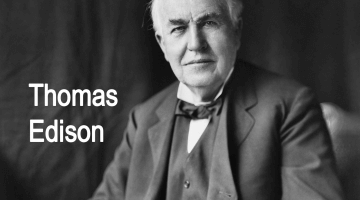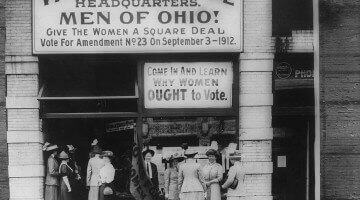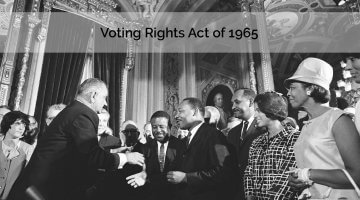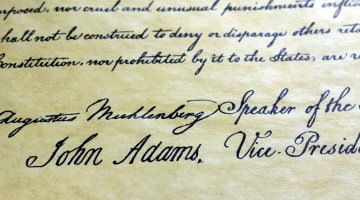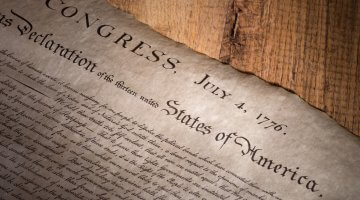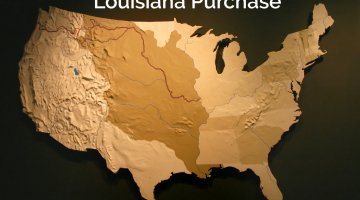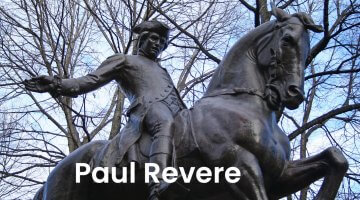With a lifetime dedicated to invention, Thomas A. Edison (1847 – 1931) earned 1,093 U.S. patents, more than any other single inventor. His impressive achievements include the invention of electric lighting, the phonograph, and motion pictures. Edison was not only …[Continue]
Women’s Suffrage
Women’s right to vote (known as suffrage) was fought for for more than fifty years, until the Nineteenth Amendment become national law on August 26, 1920. The idea began to gather steam at the 1848 Seneca Falls Convention in New …[Continue]
Berlin Wall
In 1945, after World War II, Germany was divided by the victors into two countries. East Germany was controlled by the communist regime of the Soviet Union. West Germany was a democracy supported by the U.S. The former capital city …[Continue]
Voting Rights Act of 1965
On August 6, 1965, President Lyndon Johnson signed the Voting Rights Act into law. Its purpose was to remove legal barriers at the state and municipal levels that prevented Black Americans from voting. Then in 2013, key aspects of the …[Continue]
Helen Keller
Helen Keller was born in 1880 with sight and hearing, but an illness at eighteen months left her deaf, blind, and mute. Keller overcame these disabilities to become an international spokesperson championing the causes of education, research and opportunity for …[Continue]
John Adams
John Adams (October 30, 1735 — July 4, 1826) was the second President of the United States, and America’s first Vice President under George Washington. Adams was a signer of the Declaration of Independence, and an early voice for separation …[Continue]
Declaration of Independence
This week we travel back in American history to the time of thirteen colonies struggling to free themselves from the rule of the British monarch. The story of the creation of the Declaration of Independence is a dramatic one, and …[Continue]
Father’s Day
Sonora Dodd first proposed her Father’s Day idea in 1909. Dodd wanted a special day (much like Mother’s Day) to honor her father, William Smart. Smart, a Civil War veteran, single handedly raised Dodd and her five siblings on a …[Continue]
Louisiana Purchase
Under the leadership of President Thomas Jefferson, the United States purchased 827,987 square miles of territory from France on May 2, 1803 for $15 million. It was a momentous event that doubled the size of the new country, and greatly …[Continue]
Paul Revere
Paul Revere (1735 – 1818) was an American patriot best known for riding on a borrowed horse from Boston to Lexington on April 18, 1775 to warn the colonists of approaching British troops. The next day, when the British arrived …[Continue]
